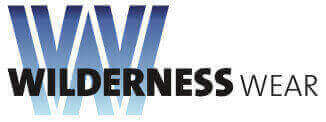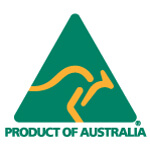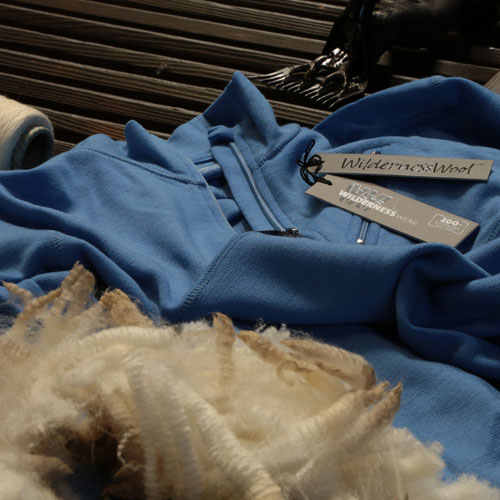
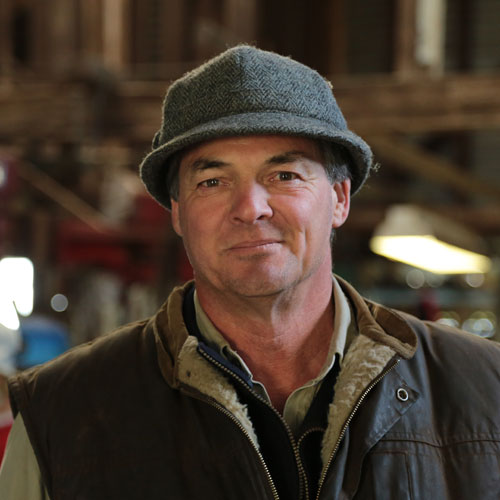
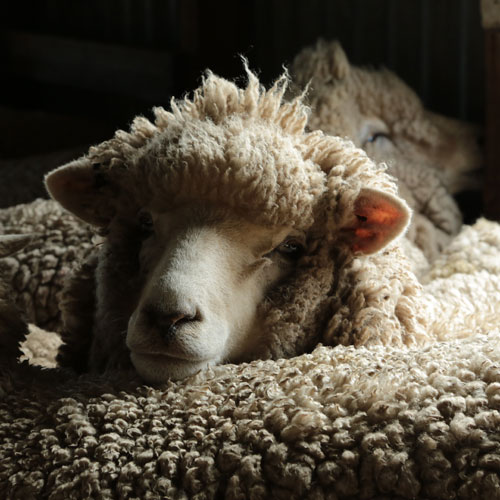
Where our Australian Merino Wool Comes From.
On a glorious and not too crisp Spring morning in October (southern hemisphere) Wilderness Wear had the opportunity to experience the annual shearing of the 2,300-head Corriedale at the Fairfield sheep farm in Cressy, Northern Tasmania – one of the four farm gates from which the company sources its superfine and fine grades of Corriedale wool. The ‘excuse’, as if any was needed, for being there was to photograph and video the activity for upcoming marketing work. But it was also an uncommon opportunity to complete the product cycle and meet the people who initiate the journey of Wilderness Wear clothing and experience the idyllic farm setting first hand. Nestled beneath the Walls Of Jerusalem National Park, the Fairfield farm is steeped in history, with the current family having owned and managed since 1949.
The traditional sandstone farmhouse and accompanying storage buildings all speak of virtuous work and a hands-on lifestyle going back generations, with something of a film set feel to the environs. And behind the main entrance area with home was the shearing shed, the place we had come to see. The structure was timber built with a tin roof, old but in wonderful shape, lit internally by a combination of small sky lights, side windows and two bins of fluorescent lights above the main work areas. (Yes, a great moody setting for our cameras!) The shearers’ days start early and finish late, with short breaks for lunch and ‘smoko’ along the way. It’s all go, with a cycle of collect, shear, transfer, grade, bail and move in constant play. And sweeping: There is a parallel process of keeping the floors clean from the wool remnants that fall through each stage of the process.
Overall, it is an Australian experience, even though sheep are grown for wool in many parts of the world. Maybe it is our history of depending on wool business for so many decades, or the familiar characterisation of the people who work the sheds that does it – as per Jack Thompson in Sunday Too Far Away – but it is definitely Australian. The notion of ‘traceability’ of inputs to Wilderness Wear product is critical to the brand platform of Quality: Materials, Design, Technology. To know the exact origin of a fiber is to know its quality and the means through which it has been produced – the people, the process, and the mindset. So, to be at the source was an important thing to experience. Conditions in the growing of Corriedale enable consistent production of low micron, long stapled fibers that are essential for the comfort and performance of Wilderness Wear garments. The fineness enables the production of lighter weight items, and the fiber length ensure strength and itch-free wearing next to skin.
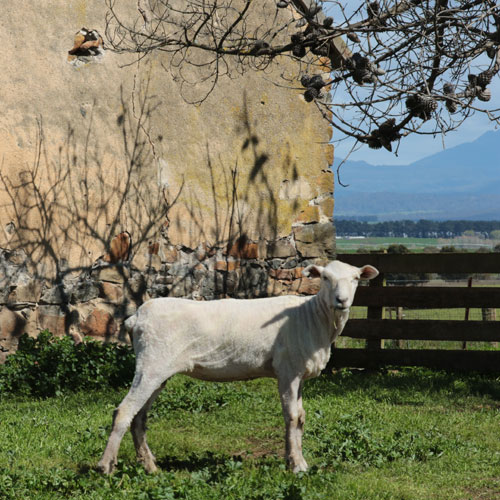
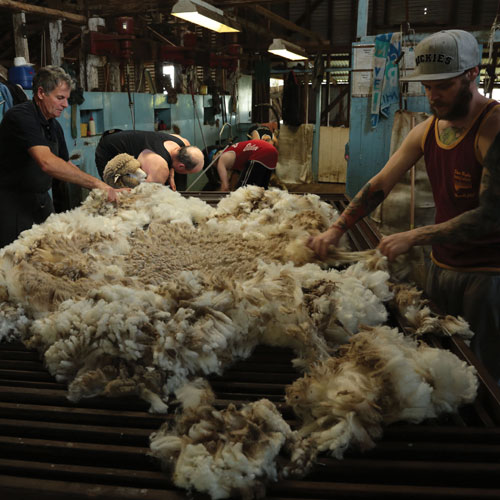
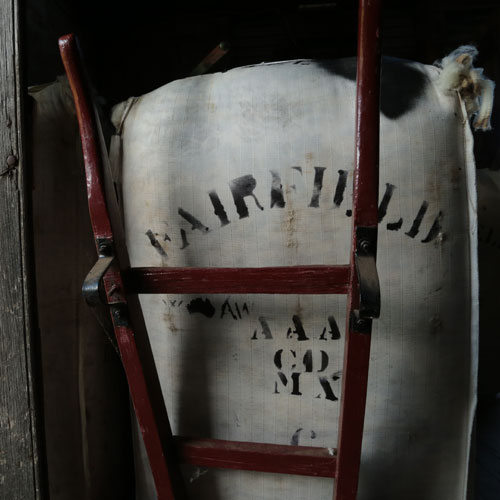
There was a buzz in the air from machinery the whole time, and the gentle banter between the shearers on and off – it’s hard to work that closely with people and not get engaged with one another. But there was the noticeable absence of one sound – the sound of dogs. Farm owner Nick Dennis decided some time ago to dispense with sheep dogs for herding and yard work, since they tend to agitate the sheep and occasionally damage them with bites. So he herds the animals himself with the aid of a quad bike, even if it might take a little longer that way. It is just one of the things that goes to improve the quality of the Corriedale wool. (If there was a bark to be heard, it would have been from a Dachshund, but they are house dogs, supposedly guarding the buildings, and do not venture near the livestock!)
During a break we set out some Wilderness Wear product to photograph, and this brought serious attention from the shearers. They were delighted to see that Corriedale wool that they had clipped in previous years return from an Australian manufacturer, and thereby completing the ‘local’ dimension to the produce and product. The clip is managed by Wool Solutions a Tasmanian wool brokerage company, under the supervision Alistair Calvert of who was there on the day and visits the farm up to half a dozen times a year. From there the bails are wholesaled to Wilderness Wear partner Schoeller for cleaning, processing spinning before it is forwarded to the Preston factory for knitting and finally make-up. Many thanks to Alistair for introducing us, to Nick for hosting us, and to the shearers Paul, Peter, Peter and crew for letting us bring our cameras into their busy work space and help capture a slice of their life for our enlightenment.


